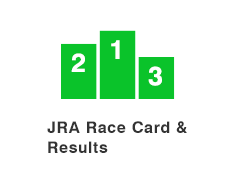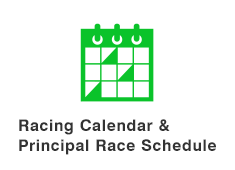



- JRA Racing Guidebook
- Japan Cup / QE II Cup / Mile CS / Champions Cup
- Yasuda Kinen
- Takamatsunomiya Kinen
- Sprinters Stakes
- Tenno Sho (Spring)
- Tenno Sho (Autumn)
- Takarazuka Kinen
- Tokyo Daishoten (Local Governments)
- International Jump Races


- Home
- Racing
- News & Media
- JRA Awards & NAR Grand Prix
- 2020 JRA Awards








